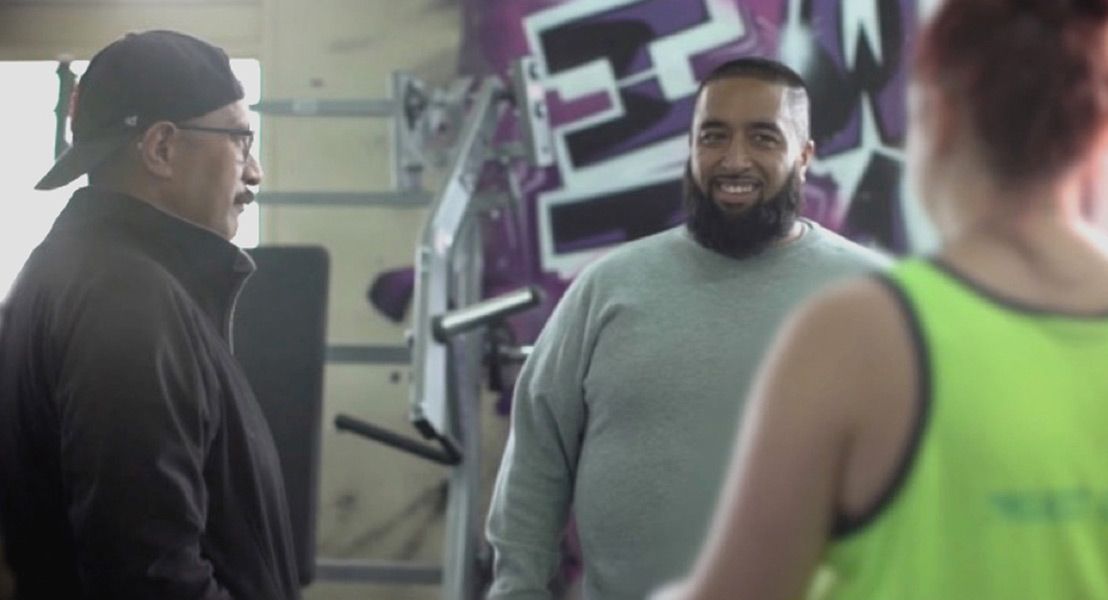“Another important thing for myself in regards to self-care was connecting with the awa, so to the river, and going regularly down to Ngahuinga.”
When Jamie started to kōrero with others after losing his eyesight and connection to te ao Māori, he found strength. Eye surgery and support from whānau and friends allowed him to carry on his mission to help his community.
I had to first connect with the wairua through karakia, waiata and also regular visits to the awa. The main thing that I had to do was kōrero, was talk and unload.
So in regards to depression and anxiety, it started for me when I was 21. I started to go blind. I had what they call keratoconus. There was nothing more that they could do. I got to the stage where I just felt like I’m losing my sight, I’m losing my vision and I started to just eat. And that was my kind of safe place, that was my happy place, and blew out to 174 kilos.
And, yeah, that was the start of it. It got worse and worse to the point where the depression got too much. It just felt empty – like there was nothing, nothing that could really take it away at the time.
I was very active, and I had my sight in regards to, I literally had a vision. You know, I had a vision for what I saw was hope for my people as Māori, and, literally, when that’s robbed away from you through sight, there’s no reason to live any more. So it’s where to from here? I didn’t want to talk about anything to anyone.
And it's literally that was probably what was the key contributor to my depression was I literally closed my mouth.
The first initial light at the end of the tunnel was my niece, and right there at that time, I had disconnected from all of my family bar her, and to me, she is my light.
The other was my uncle, David, and he was like a father to me. It wasn’t until he passed away and then I’d come to the lowest point, and it was almost like he was there saying to me, “You know, nephew, I died because of health-related issues. If you don’t do this and you don’t change now, you’re not going to be able to continue.”
And so to me, right then at that time, it was like pick yourself up. And as I cried and let it out, that was when I come to my knees and I had to karakia. And it was through then that I actually started to actually release all of these pressures. As I gave it to Him, this lightness and this ease come upon me, this peace come upon me.
I had an appointment with the surgeon with my cornea transplants. He turned around and said to me, “We can actually do something. There’s a new surgery. You go away now and lose some weight, and by the time I see you in about 6 months, we’re going to look at being able to do this cornea transplant.” To me, he was like God. He had given me this opportunity to now regain my vision.
Right then at that time, I couldn’t see, and it was from that time it took me 6 months and I lost 50 kilos, and then I got the first cornea transplant.
And I never forget the time when I opened up my eyes. Not a million dollars could have replaced that moment.
Another important thing for myself in regards to self-care was connecting with the awa, so to the river, and going regularly down to Ngahuinga. From there, I wanted to pass on this feeling, and we talked about how we could help in the community. So a lot of people wanted to lose weight, so we literally run a programme – a 6-week programme that we started off. Two years later, we’ve got Breakthrough Wellness Centre where to us, this place is a modern day marae: fitness, health, whakawhanaungatanga, kai, kōrero.
We want to help people to get healthy, because healthy bodies will create a healthy mind. It's going to help them create healthier decisions, which is going to give them direction where, it doesn’t matter what colour you are, what race you are, we’re here, we’re inclusive. Because to us, what's good for Māori is good for everyone.



